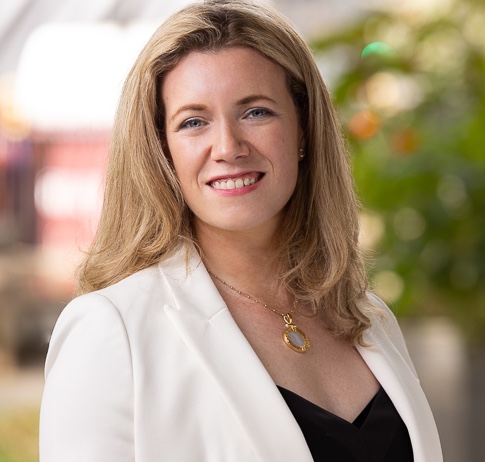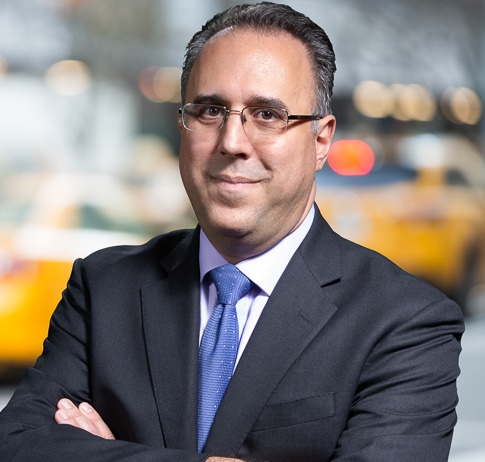Article
Why food security and sustainable agriculture must go hand in hand
20 January 2025 | 4 minute read
According to the latest estimates, the world’s population is predicted to grow to 9.7 billion in 2050 and peak at nearly 10.4 billion by the mid-2080s. With agriculture and supply chains threatened by climate change and geopolitics, innovative solutions will be needed to ensure that everyone has access to the food they need.

The greatest threat of all is climate change, says Giacomo Fanin, managing partner of Grey Silo Ventures, which invests in innovative foodtech startups. “The evolution of the climate day by day in every region is impacting the harvest, and the planting and growing seasons.”
Conflicts in Ukraine, the Middle East and elsewhere have exacerbated the problem. “There are wars in regions that are a huge producer of specific crops or products. Then there are logistical challenges, such as rockets being launched in the Red Sea, which force ships to reroute around Africa.”
This may impact our ability to meet our global food needs while we are still contributing to our greatest environmental disasters, says David Lee, founder of agritech firm Inevitable Tech, which uses technology to optimise plant growth. “The UN estimates that agriculture uses 70% of our planet’s potable water and 50% of our habitable land today , and with our population expected to grow 30% more in the coming years, we will need to make more food with less resources."

As David suggests, agriculture and wider food production have a major environmental impact (accounting for about a quarter of global emissions at current levels), and yet is one of the sectors most affected by climate change.
Improving food security and making farming more sustainable, then, go hand in hand – but the world will need some creative ideas to get us there. Precision agriculture technology (such as global positioning systems, sensors and drones) is already being used to optimise farming, while using adapted crops and varieties can prove more drought and pest resistant, making for better yields and reduced losses and waste.
Meanwhile, climate-smart technology and farming methods are helping to reduce energy and water consumption. Renewable energy can be used to power greenhouses, while hydroponics – growing plants in a nutrient-rich solution instead of soil – mean that agriculture doesn’t require as much land or contribute to soil degradation and pollution.

“By 2050, we will leverage controlled environmental production that can produce more at lower cost and lower resource consumption. We will have food that tastes better than its original form, despite being produced from new technology,” David predicts.
Foodtech will also play a vital role in finding alternatives to traditional protein sources such as meat that can feed a growing population while also reducing the environmental impact of farming. Roslin Technologies is a UK start-up that uses biotechnologies to develop superior cells for cultivated meat in a bid to address the growing protein gap.
“Demand is increasing with population growth and increasing incomes,” explains CEO Ernst Van Orsouw. “But supply of high-quality proteins, especially animal proteins, is constrained and our natural environment is under pressure. To close the protein gap, it is imperative to find alternative ways to produce proteins that are more sustainable. Such proteins need to be safe, affordable and meet consumer expectations in terms of taste, nutrition and health.”
By 2050, we will leverage controlled environmental production that can produce more at lower cost and lower resource consumption.
Looking to the future, Ernst expects everyone to have access to responsibly produced proteins. “We expect supply chains to be shorter and more distributed, and that people have access to a wider variety of sustainably produced plant-based and animal protein products to choose from,” he adds.
Innovation, however, is only one part of the food security puzzle: global cooperation and finance is needed to help poorer communities facing acute food security and climate change challenges, alongside supporting policies and fair prices for farmers adopting sustainable agricultural practices, particularly in developing countries.

For this reason, Claude Arpels, co-chair at Slow Money NYC, a US non-profit catalysing investment in sustainable food and farms, believes that investing in the social mission is as important as the environmental mission. “The food movement has long had the stigma of an elitist movement. It is critical to show that the issues we are addressing appeal to a broad and diverse population.”
To that end, the non-profit has created a roadmap to help early-stage entrepreneurs raise capital for their sustainable food or farm business. “Environmental issues cannot be effectively addressed top-down. It must be a grassroots effort,” Claude explains. As a result, much of Slow Money NYC’s work involves building communities and coalitions – its biggest public event, Food Funded East, is produced in collaboration with several partners that create opportunity for underrepresented groups, helping to attract a larger and more diverse audience of entrepreneurs to the event.
Claude's remarks echo views expressed by other Withers clients across agriculture, agritech and the wider food industry. With 2.5 billion more mouths to feed within a generation and an unprecedented set of challenges in play, innovative organisations will need to work together to build food security on a global scale.
Backing Innovation
Where private capital and powerful ideas meet

.png?lang=en-GB&ext=.png)





